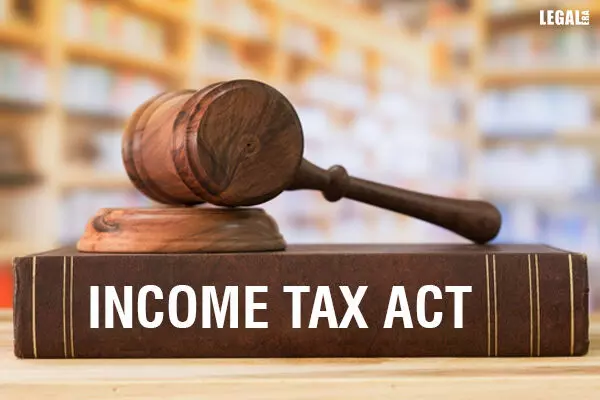- Home
- News
- Articles+
- Aerospace
- Agriculture
- Alternate Dispute Resolution
- Banking and Finance
- Bankruptcy
- Book Review
- Bribery & Corruption
- Commercial Litigation
- Competition Law
- Conference Reports
- Consumer Products
- Contract
- Corporate Governance
- Corporate Law
- Covid-19
- Cryptocurrency
- Cybersecurity
- Data Protection
- Defence
- Digital Economy
- E-commerce
- Employment Law
- Energy and Natural Resources
- Entertainment and Sports Law
- Environmental Law
- FDI
- Food and Beverage
- Health Care
- IBC Diaries
- Insurance Law
- Intellectual Property
- International Law
- Know the Law
- Labour Laws
- Litigation
- Litigation Funding
- Manufacturing
- Mergers & Acquisitions
- NFTs
- Privacy
- Private Equity
- Project Finance
- Real Estate
- Risk and Compliance
- Technology Media and Telecom
- Tributes
- Zoom In
- Take On Board
- In Focus
- Law & Policy and Regulation
- IP & Tech Era
- Viewpoint
- Arbitration & Mediation
- Tax
- Student Corner
- AI
- ESG
- Gaming
- Inclusion & Diversity
- Law Firms
- In-House
- Rankings
- E-Magazine
- Legal Era TV
- Events
- News
- Articles
- Aerospace
- Agriculture
- Alternate Dispute Resolution
- Banking and Finance
- Bankruptcy
- Book Review
- Bribery & Corruption
- Commercial Litigation
- Competition Law
- Conference Reports
- Consumer Products
- Contract
- Corporate Governance
- Corporate Law
- Covid-19
- Cryptocurrency
- Cybersecurity
- Data Protection
- Defence
- Digital Economy
- E-commerce
- Employment Law
- Energy and Natural Resources
- Entertainment and Sports Law
- Environmental Law
- FDI
- Food and Beverage
- Health Care
- IBC Diaries
- Insurance Law
- Intellectual Property
- International Law
- Know the Law
- Labour Laws
- Litigation
- Litigation Funding
- Manufacturing
- Mergers & Acquisitions
- NFTs
- Privacy
- Private Equity
- Project Finance
- Real Estate
- Risk and Compliance
- Technology Media and Telecom
- Tributes
- Zoom In
- Take On Board
- In Focus
- Law & Policy and Regulation
- IP & Tech Era
- Viewpoint
- Arbitration & Mediation
- Tax
- Student Corner
- AI
- ESG
- Gaming
- Inclusion & Diversity
- Law Firms
- In-House
- Rankings
- E-Magazine
- Legal Era TV
- Events
Supreme Court: Profit From Foreign Exchange Fluctuations is Not Eligible for Deduction under S.80 HHC Income Tax Act

Supreme Court: Profit From Foreign Exchange Fluctuations is Not Eligible for Deduction under S.80 HHC Income Tax Act
In a landmark ruling, the Supreme Court of India has held that profit from exchange fluctuation is independent of export earnings and is not eligible for deduction under Section 80HHC of the Income Tax Act. This decision has significant implications for exporters who maintain Exchange Earners Foreign Currency (EEFC) accounts.
The case involved an exporter, identified as the assessee, who claimed a deduction under Section 80HHC of the Income Tax Act for the profit it earned from exchange fluctuations in its EEFC account. The Assessing Officer (AO) disallowed the deduction, and the assessee appealed to the Income Tax Appellate Tribunal (ITAT), which upheld the AO's decision. Aggrieved by the ITAT's decision, the assessee approached the Supreme Court.
The central question before the Supreme Court was whether the gain on foreign exchange fluctuation in the EEFC account of the assessee partakes in the character of profits of the business of the assessee from exports and can the gain be included in the computation of deduction under profits of the business of the assessee under Section 80 HHC of the Act?
In a unanimous decision, the Supreme Court, comprising Justices B.V. Nagarathna and SVN Bhatti, held that the profit from exchange fluctuation in the EEFC account of the assessee does not fall within the meaning of "derived from" the export of garments by the assessee. The Court reasoned that the opening and maintaining of an EEFC account is not a mandatory requirement for export business or earning profits in the business of export outside India. The Court also noted that the gain from exchange fluctuation is not directly related to the export of goods or merchandise.
The Court, in its judgment, meticulously examined the provisions of Section 80HHC and concluded that the deduction under the section is specifically intended to promote and incentivise export trade by providing relief to exporters from the profits derived from the export of goods and merchandise outside India. The Court emphasised that the language of Section 80HHC restricts the deduction to profits "derived from" the export of goods and merchandise.
The Court further observed that the profit from exchange fluctuation arises solely from the movement of foreign currency rates and has no direct nexus with the export of goods or merchandise. The Court reasoned that the profit or loss from exchange fluctuation is an independent transaction and cannot be considered as a part of the profits derived from the export business.



